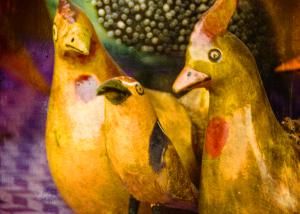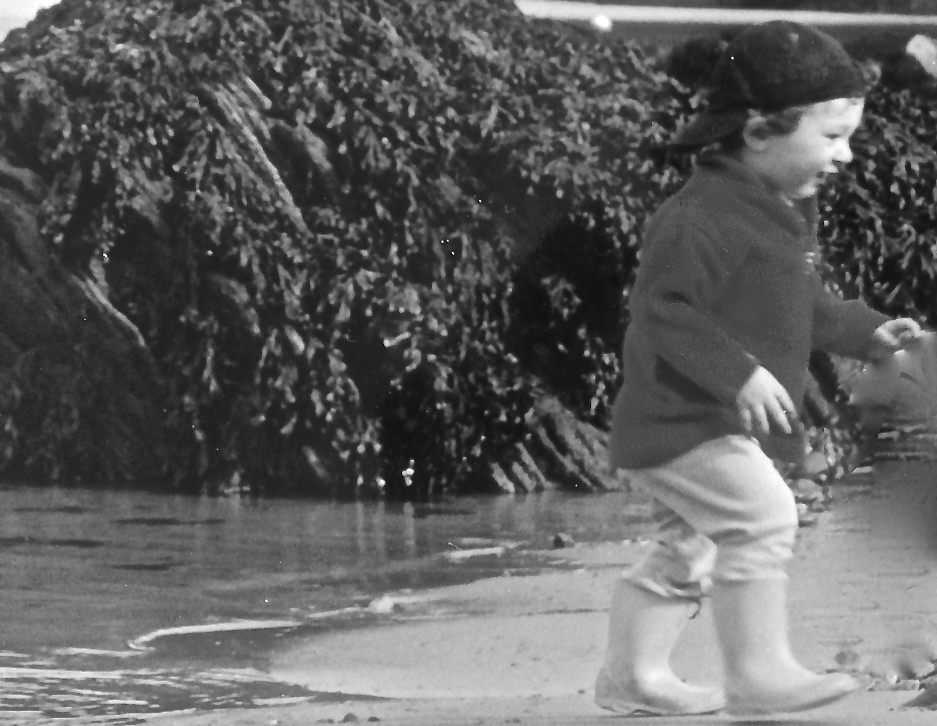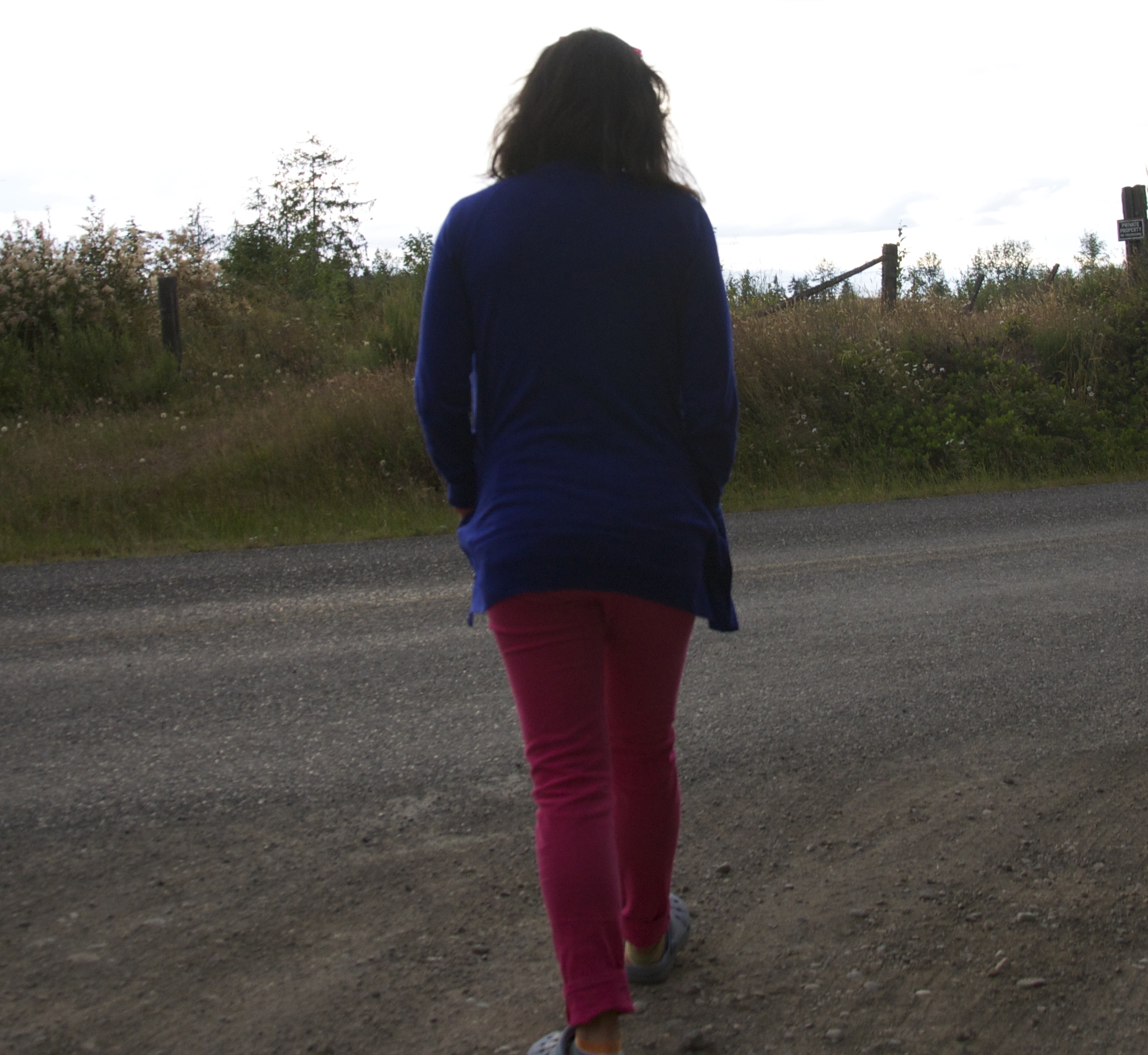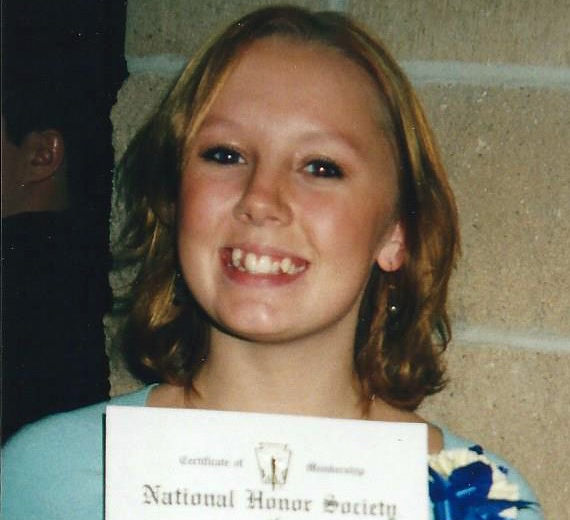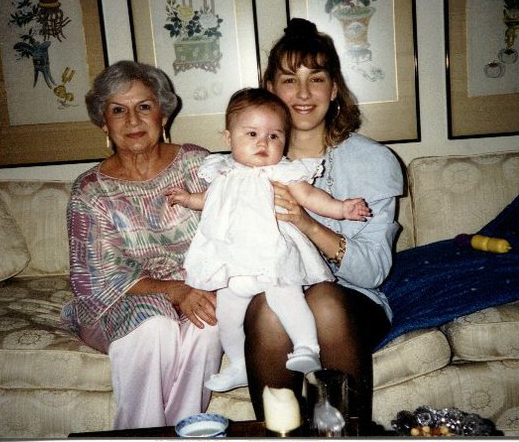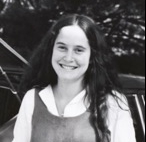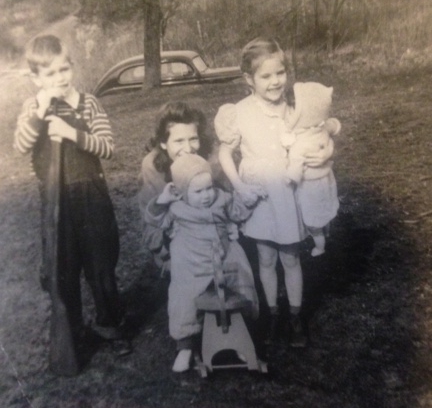He was asleep. Arms resting at his sides, legs stretched toward the slats at the end of the crib. Blades of light cut through the blinds reddening tufts of blond as they danced over his head like twinkling embers. His wispy baby hair had grown into a miniature mullet, the ends swooping upward as if styled with a curling iron, the hair at his temples dampened by exhaustion. There was a Riley shaped patch of sweat on the white sheet below him. As mothers do, I had watched him sleep more times than I could count.
Only he wasn’t actually asleep. My eyes stayed fixed on his hair because it was the only part of his body that let me believe he was sleeping. It was the only part of his body not stitched with thick black thread and taped or bound with rolls of gauze holding something or other in place. This was not normal. So I kept looking at his hair. His soft little boy hair.
I wanted to look at my three-year-old son, to marvel at his small hands and perfect nails like it was any other Saturday. I wanted to inhale the boy with large blue eyes and a taste for bleu cheese dressing, but below his hair, I couldn’t see him. Instead, I saw his bed and the white layers of sheets between his body and the plastic hospital mattress. I saw the ventilator in his mouth and the massive strips of white tape holding it in place covering most of his face. I saw the rolled up receiving blankets with the blue bears and pink bears propped under the right side of his neck, exposing the left side. I saw those two, clear plastic cannulas thick as No. 2 pencils sticking out of his neck that attached to the machine that whirred—ECMO. Extracorporeal membrane oxygenation, an external heart/lung bypass machine.
I stroked his mane one last time before joining his dad near that whirring invader standing tall like an oversized reel to reel recorder. “It really is blue and red. I’ve never thought it would be so obvious,” Ken said, as we watched those two cannulas in his neck—one in the carotid artery and the other in the jugular vein—transport his blood from flesh to science and back again. “It’s pretty amazing.”
I didn’t know what to say, so I just looked at the different colors of blood before landing in the rocker at the end of the bed.
Riley had been born with half a heart, and forty-eight hours earlier he underwent the last of a three-stage surgery we’d agreed to when he was just days old. After a long, post-surgery sleep, he had been extubated, sat up, had juice, and said he was fine in a tiny, high-pitched voice raspy from the ventilator. From there, a postoperative arrhythmia quickly escalated to an emergency situation that led to all of this. During his short life, he had been supported with medicines and machines and pacemakers and interventions many times. This was different. His form was there, but that monster--part octopus, part vampire--attached to my boy made me feel like he was gone.
Ken dragged a chair into the tiny room next to where I sat. He dropped his Skeptical Enquirer onto it before going to look at the monitor displaying Riley’s heartbeat again. My sudoku book rested on my lap as I watched him and the nurse who fluttered around Riley’s bed.
After several minutes, I went to Riley’s side and talked to his hair. “Do you want me to send Grammy and Grampy in to see you? Or Grandma?” I’m not sure why I waited for a reply. When we got to the waiting room we had other visitors as well. It was the weekend after all. A mom from my son’s playgroup was there with her husband and two girls. Our arms like emotional sandbags wrapped around each other for a long time. There was some small talk about how different the temperature was in San Francisco versus the Peninsula and some general questions about Riley’s status. “Would you like to see him?” I asked.
Jude and her husband shared a sideways glance. “He can have visitors?” I always loved Jude’s English accent. It reminded me of simpler times, like the semester in college when I studied in London nine years earlier.
“Well, he’s sedated, but people can go into the ICU. Come on,” I said, pushing my bangs behind my ears and waving the visitors towards the hallway. “They can watch the girls,” I said, gesturing to family members.
“Okay,” she said with reluctance as her brows pinched with concern. “How’s he doing?”
As we walked, I explained about the machine and what the doctors had told us. “For now, he’s totally stable. The machine’s doing the work so his heart can rest.” They hesitated inside the PCICU doors, looking for permission. Again, I cajoled them forward through the quiet pediatric cardiac intensive care unit. I slid the glass door open and they stood on the room’s threshold. I suspect they saw Riley the way I saw him after his first surgery when he was just six days old—barely visible under the intervention trapping him.
They both pumped a dollop of hand sanitizer into their palms. I started showing them around like they were looking at an apartment to rent. Facts felt easier than feelings. “These are the infusion machines,” I said pointing to a stack of identical rectangular boxes attached to a tall metal post. “Each one delivers a different medicine into one of his lines. And this here is called ECMO. See those tubes there?” I pointed to the straw-like tubes attached to Riley’s neck, “If you look closely, you can see one is blue and one is red.”
Jude was petite with dark hair and eyes. She reached towards Riley’s left foot and rubbed little circles on the pink sole, one of his only visible body parts. Her eyes scanned his body. Her husband who was much taller rested his hands on her shoulders. “How long will he be like this?” he asked.
“They hope to start weaning him off of ECMO within the next twenty-four hours. But he’ll probably need surgery again. They’re not sure he’ll recover.” I hesitated for effect, then started to walk towards the door, to release them.
“Oh Suzanne, I don’t know how you’re managing,” Jude said softly. I realized that my comment implied that he was likely to die. While that was a possibility, it wasn’t what I meant. I meant he might not be able to get off ECMO without more surgery. I sounded very cavalier, callous. I scratched the side of my pregnant belly and adjusted my snug maternity shirt. They both looked at my stomach and half smiled. They probably wanted to ask if the next baby had a healthy heart, but didn’t.
I asked about their girls as we walked back towards the waiting room. Their older daughter, who was just a month younger than Riley, hugged my leg. I kneeled down to her level. She was the perfect size, and I held her three-year-old body until she wiggled away. Like Riley, she loved trains, and it was one of the things they talked about when they played together. How long would she remember him? I wondered.
The day continued with a parade of visitors, me forcing each group into the ICU to see my dying son. Person by person or couple by couple, I ushered them in to see his little bloated body. I wanted them to feel grateful that their child was healthy. I wanted them to feel sorry for me.
It was one thing to read updates online—Riley is out of surgery; Arterial line closed, drainage increases; Heading to cath lab, surgery likely; Waiting for the cath lab results to set path—and it was quite another to see the thirty-three-pound boy who had been in their house and played with their children asleep with his head cocked sideways so that the left side of his neck stuck up.
When all of the visitors had gone, I rocked myself in the glider at the edge of Riley’s hospital room. Back and forth, forth and back. The pink and blue privacy dividers hung like shower curtains over the glass that separated our family’s tragedy from others. Circling my hands around my bulging stomach, I held my unborn baby because I couldn’t hold my son, just four feet away.
The words a friend had said when Riley was just days old played in my head. “I wouldn’t be surprised if you were pregnant again when Riley has his third surgery.” At the time I didn’t understand how she thought I could someday have another baby. Yet there I was six months pregnant with baby boy No. 2. Back and forth.
I thought of the slightly increased odds Riley’s cardiologist had given us of having another baby with a complex heart defect. I had a fetal echocardiogram at sixteen weeks that looked at the baby’s heart in detail; we had genetic counseling to see what else might go wrong based on our families’ medical histories; and a Level II ultrasound at eighteen weeks that looked at all of his organs in detail. The tests said I would have a healthy baby. But none of that fixed my unhealthy baby. Forth and back.
I thought of the hundreds of mothers who’d sat in that room and in that glider before me. Back and forth.
I thought of other mothers I knew. Most had already given birth to a second. They hadn’t had the need to balance that decision with whether their first would survive another heart surgery. Forth and back.
I thought of my grandmother. Her three year old daughter, who would have been my aunt, had been hit and killed by a car. I imagined her grief in comparison to what I felt as I sat helplessly next to my boy who teetered between between here and there. Back and forth.
I thought of my mother. Acid bubbled in my stomach whenever I thought of the conversation we’d had after Riley’s second operation—me in the hospital and her 2,500 miles east. “He’s on a pacemaker,” I’d said. The line sat quiet for a moment before she asked her follow-up question: “So were you able to get those pictures of me on Match.com?” Forth and back.
Now my mother sat in the waiting room with Ken’s family. I was overwhelmed by the day’s visitors, and I simply wanted to be alone with my two boys. The dark blue couches with the pale green circles would be packed with people talking or joking or crying. And I couldn’t bear to see those two little boys, their footed pajamas stuffed into sneakers, jumping across the hardwood floor again. They would make me think of the two little boys I would never have because I was sure this hospital stay would end with a bedroom door that I would keep shut indefinitely.
As I rocked myself, I remembered the way Riley felt four years earlier as he’d tumbled around in the safety of my stomach, during my blissfully-ignorant pregnancy. As I rocked myself, I was certain Riley was going to die. It would be okay, though, because a healthy version of him was growing in my stomach, his strong legs pushing my ribs. He’d be the same in every way, down to the way he said rhinoceros. Russell Norris. I imagined that over time I would forget that there had been two, that one had been sick and hospitalized. There would just be one healthy son.
Welcome to the seventh issue of Six Hens.
